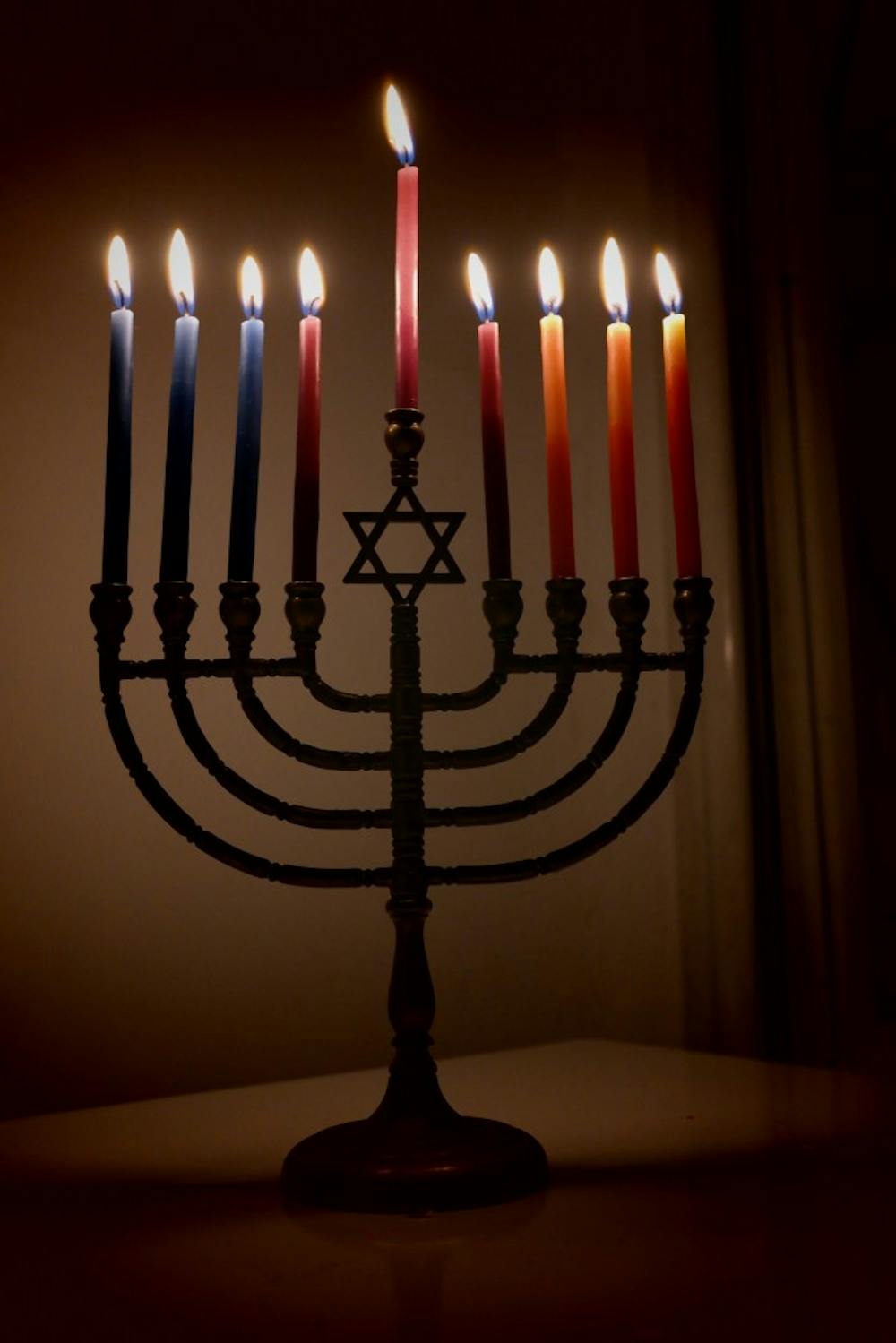Freshman Natasha Ma has a menorah decal on the window of her dorm room. But on Tuesday, when Hanukkah starts, she won’t be able to light the menorah due to the rules against burning candles in dorms. Even though they might not be able to light their menorahs, Ma and other UP students who observe Hanukkah will celebrate in their own ways.
Hanukkah celebrates the rededication of the Holy Temple in Jerusalem in the second century BCE after it had been controlled by the Greeks. When the Jewish people wanted to light the menorah, they found what they thought was only a one-day supply of oil. However, the oil lasted for eight days, which is why Hanukkah is celebrated for this amount of time. The starting date of the holiday changes every year depending on the Hebrew calendar, and this year, it starts on Tuesday, Dec. 12, which happens to be in the middle of UP’s finals week.
Given that students will be at UP and not with their families for part of the holiday, their celebrations will look a little different. The students interviewed said that at home, they light the menorah, play with the dreidel and eat latkes, as well as partake in other traditions. Freshman Ryan Dexheimer said that one of his fondest Hanukkah memories is lighting the menorah and praying with his father. He said that he ordered a menorah to light at UP and plans to talk with the Corrado hall director to see if he could perhaps break the no-candles rule for a few nights.
Freshman Maayan Zuniga recalled that along with lighting the menorah, her family sings Hebrew songs and eats latkes, potato pancakes, and sufganiyot, a type of jelly-filled doughnut. These traditions make Hanukkah one of her favorite holidays. This year though, she said that she will be busy studying for finals and will have to wait until Friday when she goes home to participate in them.
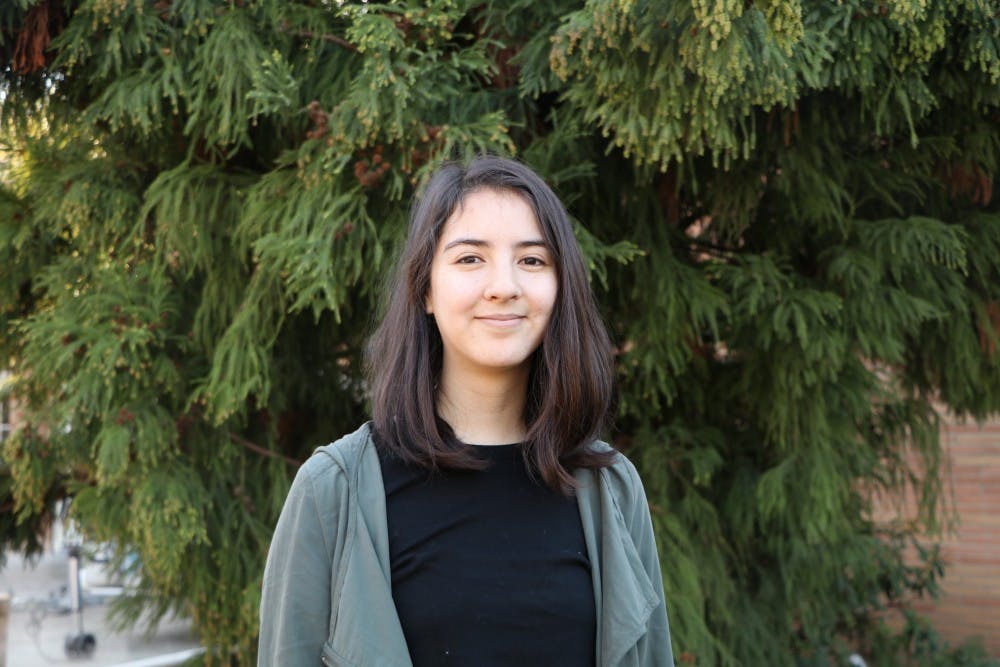
“Singing songs together with the family brings the family together and really lets you appreciate the environment that you’re in,” Zuniga said.
Jamie Williams, also a freshman, said that he considers lighting the menorah to be one of the most introspective aspects of the holiday and finds the candlelight relaxing. He said that he also enjoys playing with the dreidel — what he described as a “less intense” version of gambling — to earn gelt, chocolate coins. He also bakes kichel, a type of cookie, with his grandmother, and she even sends them to him, he said. This year, he said he’ll try to bake the cookies in the Shipstad basement in between studying for finals.
Hanukkah also involves giving gifts, but there’s a misconception that all people receive eight elaborate gifts, Dexheimer explained.
“There’s a lot of stereotypes that ‘Oh, you get eight gifts, that’s amazing,’” Dexheimer said. “People don’t realize the gifts are extremely small. One day I’ll probably get a candy bar, and then the next day, I’ll get a shirt, and that’ll be the most expensive gift.”
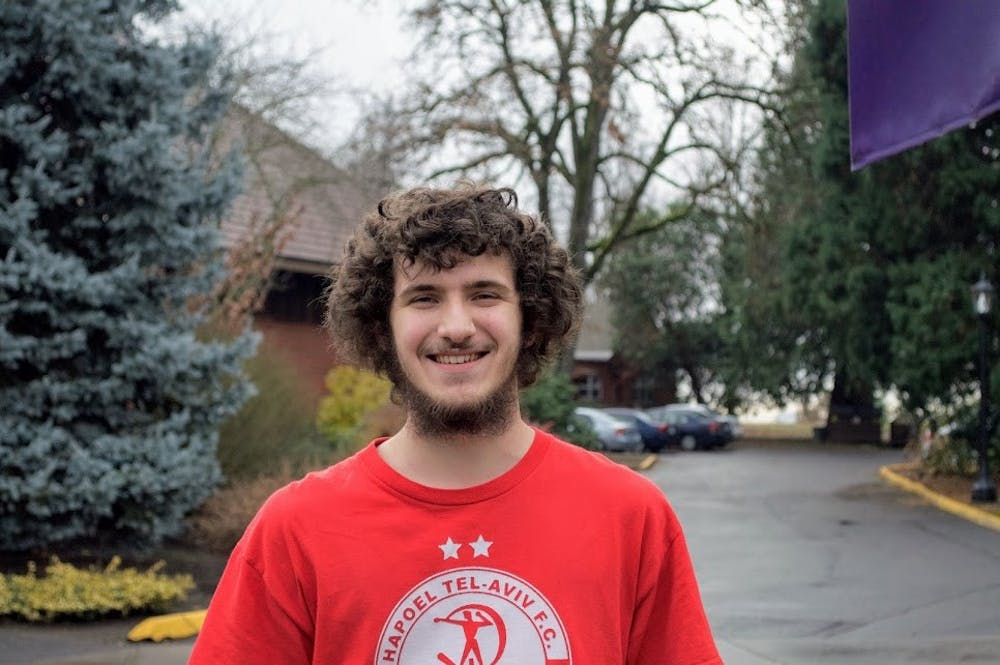
His girlfriend, Caydin Sablan, who is celebrating Hanukkah for the first time this year, said that she has bought him smaller, practical gifts, along with a few sentimental items.
Ma said she typically gets smaller gifts for each day of the holiday and added that in her family, only her parents give gifts to the children. Zuniga explained that Hanukkah is not gift-based and is more focused on lighting the menorah and spending time with loved ones.
Williams also emphasized that Hanukkah is a time to be shared with others and said that his family usually partakes in a Hanukkah dinner. But he also celebrates Christmas, so he attends a variety of Hanukkah and Christmas dinners each year. Ma’s family also organizes Hanukkah dinners, and she noted that the fact that the holiday is eight days long means that they can invite a lot of guests to their home over the course of it, including non-Jewish people. She also celebrates Christmas and said that she relishes being able to celebrate both of the holidays.
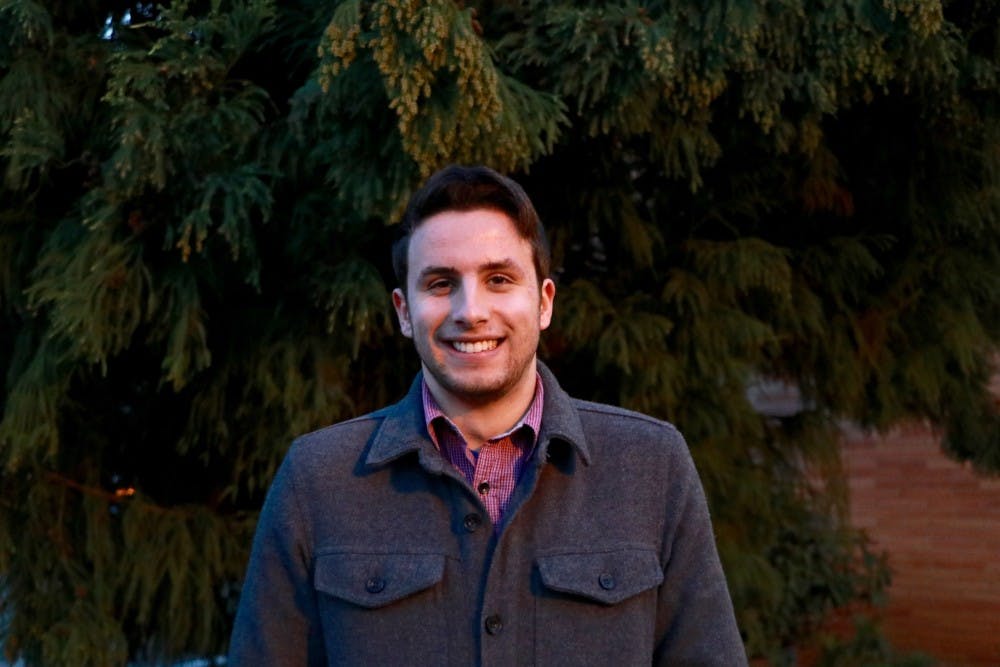
“Hanukkah changes every year, so sometimes it’s Hanukkah and Christmas on the same day... You light the candles, then you go to the tree, it’s very different,” Ma said. “I think it adds to the experience because you get to learn about both religions, and so I think it’s very nice because you can relate to more people.”
Next to the menorah decal on her window, her roommate has put up a Christmas tree decal, and Ma said that she plans to teach her roommate and some of her friends to play with the dreidel. She said that at UP, people have been accepting of her Jewish faith and that people have been eager to learn about it.
“Obviously there’s not a lot of Jewish people (here), but (people are) like ‘Oh, you’re Jewish? Tell me more,’” Ma said. “They don’t understand the menorah, so you explain it to them, and they’re very interested, so it’s nice.”
Zuniga said that the Christmas decorations around UP don’t bother her because she’s used to people celebrating Christmas and said that she expected such an atmosphere because it’s a Catholic school. Although Christmas celebrations don’t interfere with her celebration of Hanukkah, she said she wishes people at UP knew more about the holiday.
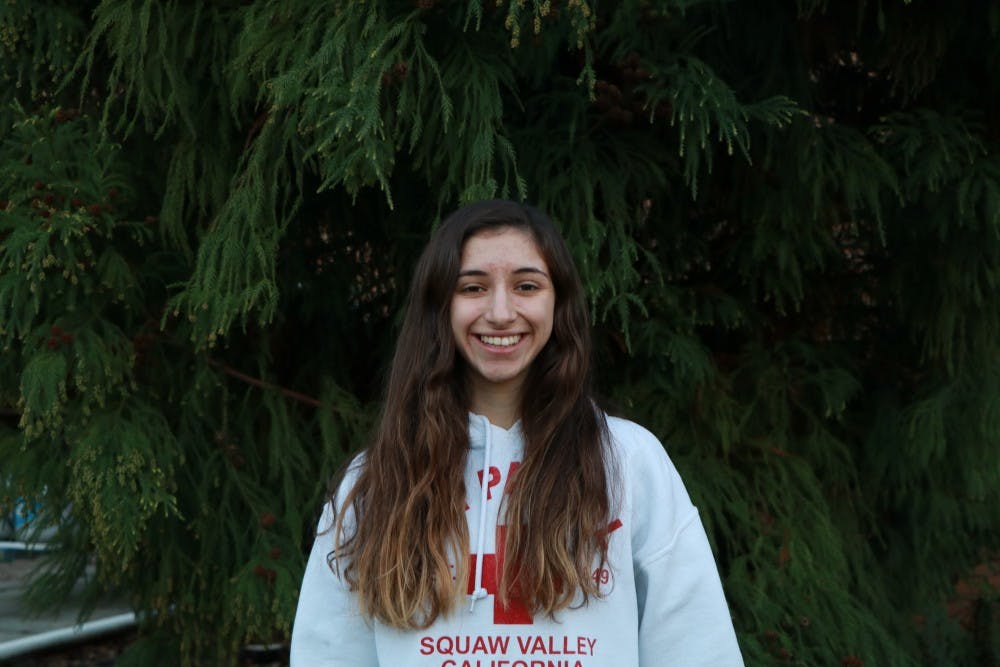
Dexheimer said that he doesn’t really mind being in a place where the majority of people celebrate Christmas, but that there are aspects of it that he finds frustrating.
“Christmas to me is just so materialistic... I just don’t get why people spend so much money on lights and give gifts to their family while there are poorer people who need help,” Dexheimer said. “I get that there’s communities that help, but I don’t think enough people do it.”
He said that he hopes the menorah he ordered will arrive by Tuesday but that either way, he is eager to celebrate with his family in Tigard when he leaves for break on Thursday. Ma said that she also looks forward to Hanukkah because in her opinion, it’s one of the “happier” Jewish holidays. She explained that most are more heavily focused on reflection and can have a sadder feel. For her though, Hanukkah is a time to be happy.
Dexheimer agrees with her.
“It’s a time to come together...that’s essentially what Hanukkah is for us,” he said. “You just light the menorah and have fun.”



